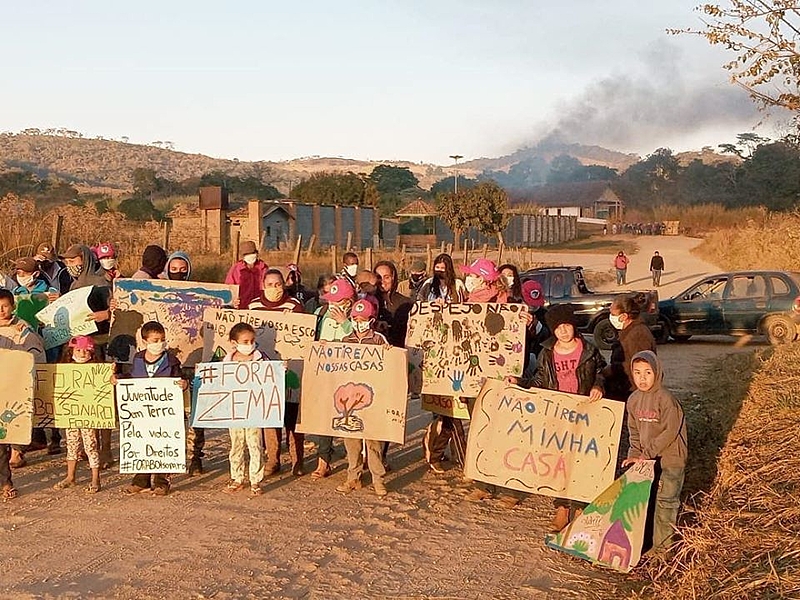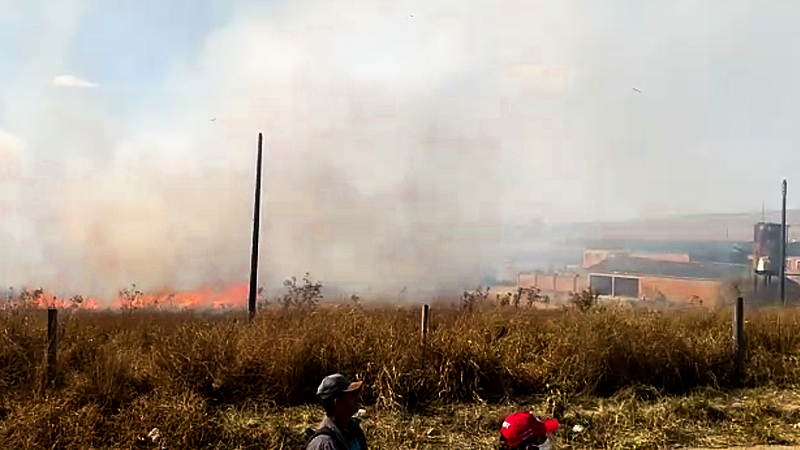Military police set fire to the Quilombo Grande camp of the Landless Rural Workers’ Movement, located in the southeastern state of Minas Gerais, with the objective of evicting the families that have been resisting a land repossession order for more than 35 hours. On the morning of Thursday August 13, the Eduardo Galeano Popular School was destroyed with a tractor. In addition to the school, on Wednesday morning, the police evicted dormitories where three families lived.
Despite the declarations from the governor of Minas Gerais, Romeu Zema (Partido Novo), on social media that affirmed that his government defended the postponement of the eviction, the police forces remain at the camp. The Quilombo Grande camp has been occupied by the landless families for the last 23 years and has become a reference point of agroecology in Brazil.
Several hours after the governor’s declaration, the families remained uneasy. According to the MST, the government affirmed that the Secretary of Social Development of the state forwarded the suspension request to the Campos Gerais region, where the camp is located, who rejected the request.
The official responsible for the eviction informed the MST that the action would occur as long as there was no official suspension.
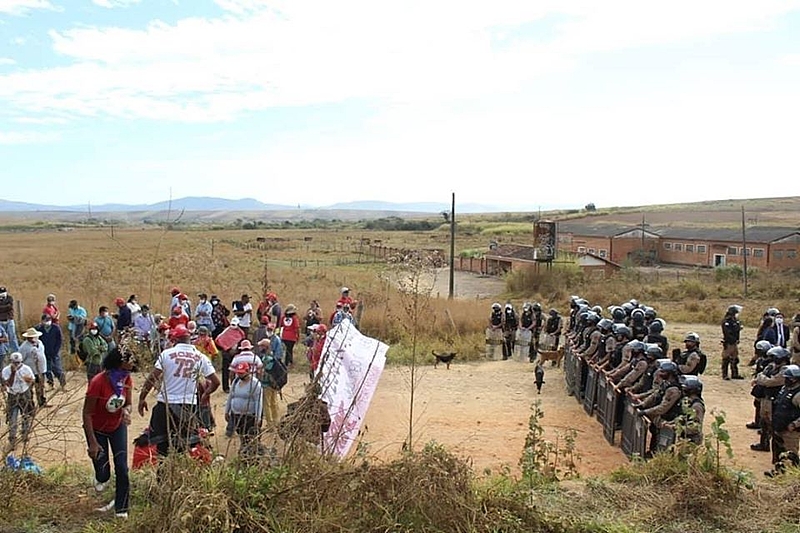
Tuíra Tule, a leader from the MST in Minas Gerais, denounced the belligerence of the police and the responsibility of the government with regard to the conflict.
“We remain here, on watch. We are surrounded by the police. Yesterday there was a team of 150 police officers. More than 20 police cruisers arrived. We are here in resistance. We want to denounce the cowardice of the Zema government,” said the leader.
“We need the support of society, from Minas Gerais, from Brazil, from the whole world. We are standing firm and we will not leave,” he declared.
The eviction of the camp will result in the destruction of all of the agro-ecological harvest. At the camp, families produce corn, Guií organic coffee, and dozens of other foods that are distributed at the cooperatives and stores of the MST.
Several parliamentarians, including the president of the Human Rights and Minority Commission of the Chamber of Deputies of Brazil and the president of the National Human Rights Council requested an emergency meeting with governor Romeu Zema to debate the suspension of the land repossession order.
The federal deputy Rogério Correia, of the Workers’ Party, classified the police action in the midst of a pandemic as “cowardice.”
“The families are surrounded by riot police and helicopters, in the midst of a pandemic. The recommendation of the Supreme Court and the Supreme Court of Justice is that all evictions be stopped during this time. The children were taken out of the school where they were with adults. The situation is very serious. We ask for support,” said the Workers’ Party deputy.
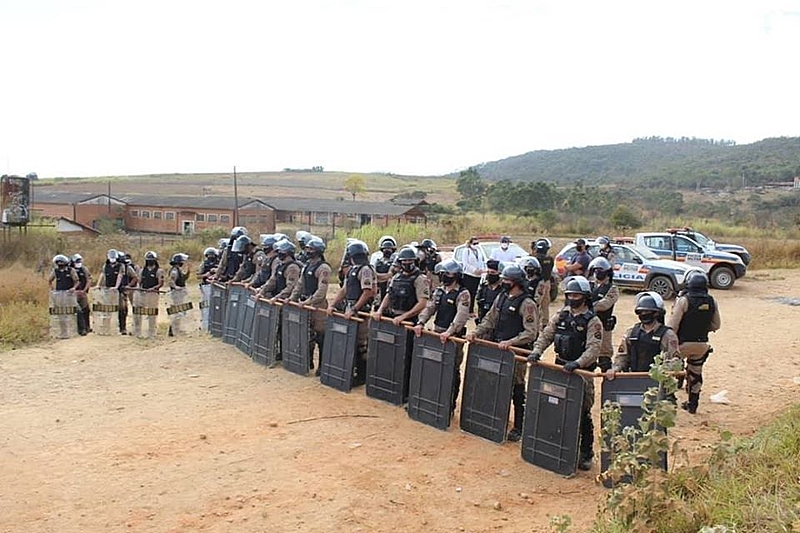
The conflict
The members of the Quilombo Grande camp, who would be impacted by the eviction, live on the land of the failed sugar plantation Ariadnópolis, which stopped its activities in 1996.
According to the denouncements presented by the MST, the police aggression against members of the camp is common. On July 30, for example, more than 20 police officers invaded the camp and detained landless worker Celso Augusto, who they released later that day.
The families also said that the police agents invaded their homes carrying rifles and pistols and destroyed doors and windows. The MST denounced that the day before the eviction began, the police encircled the camp with patrol cars, intimidating the families.
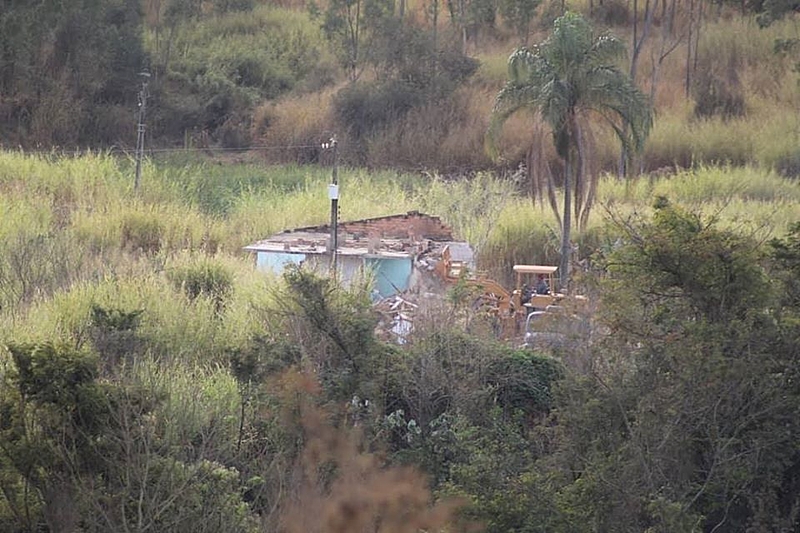
Popular support
The hashtag “Zema Covarde” trended on a global level on Thursday August 13, in support of those living at the camp that have been resisting the eviction for more than 30 hours.
Protests against the neglect of the governor were also carried out in diverse points of the Minas Gerais state. In Itatiaiaçu, for example, landless families from the Maria Conceição camp protested outside the stores of the Zema chain in defense of the families from Quilombo Campo Grande.
In Governador Valadares, other members of the MST mobilized outside the Municipal Chamber of Deputies, where Zema participated in a press conference.
